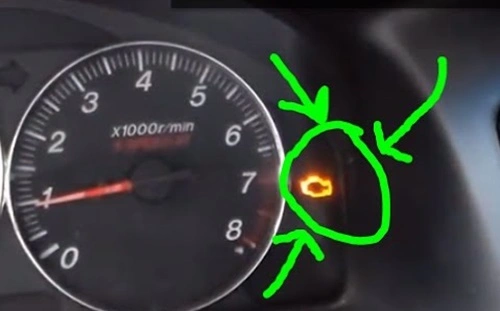Yes, it is illegal to remove or disable a check engine light in the United States. Federal and state laws regulate vehicle emissions and require that diagnostic systems, including the check engine light, function properly. Tampering with these systems can lead to significant legal consequences, including fines and failed vehicle inspections.
Understanding the Role of the Check Engine Light
- Purpose of the Check Engine Light
- The check engine light is part of a vehicle’s On-Board Diagnostics (OBD-II) system, designed to monitor engine performance and emissions.
- It alerts drivers to potential issues, such as engine malfunctions, faulty sensors, or emissions problems, ensuring vehicles remain environmentally compliant.
- Federal Emissions Standards
- The Clean Air Act, enforced by the Environmental Protection Agency (EPA), mandates that vehicles meet emissions standards.
- Disabling or tampering with the check engine light interferes with these standards, as it compromises the vehicle’s ability to detect and report emissions-related issues.
Why Disabling the Check Engine Light Is Illegal
- Violation of the Clean Air Act
- Tampering with emissions control systems, including disabling the check engine light, violates federal law under the Clean Air Act.
- This law prohibits any action that defeats or bypasses emissions control systems.
- State Vehicle Inspection Requirements
- Many states require vehicles to pass emissions inspections to be registered or legally driven. A functioning check engine light is essential for these inspections.
- Vehicles with non-functioning or removed check engine lights typically fail these inspections.
- Fraudulent Activity
- Disabling the check engine light can be considered fraud if it is done to deceive a buyer or avoid repairs. Selling a vehicle with a non-functioning or hidden diagnostic system without disclosure is illegal.
Legal Consequences of Removing or Disabling the Check Engine Light
1. Federal Penalties: Tampering with emissions control systems, including the check engine light, can result in fines of up to $25,000 per violation for individuals and higher penalties for businesses or manufacturers.
2. State Penalties: States impose additional fines and penalties for failing vehicle inspections due to tampered or disabled check engine lights.
3. Civil Lawsuits: Buyers who discover that a vehicle was sold with a disabled check engine light may sue for fraud or seek damages for necessary repairs.
Alternatives to Disabling the Check Engine Light
1. Diagnose and Repair the Issue: The best approach is to use an OBD-II scanner to diagnose the issue and repair the underlying problem triggering the light.
2. Professional Inspection: If you are unsure about the issue, seek assistance from a certified mechanic who can accurately diagnose and fix the problem.
3. Vehicle Maintenance: Regular maintenance, including oil changes and sensor checks, helps prevent issues that trigger the check engine light.
Related FAQs
Q1. Can I reset the check engine light?
Ans: Yes, you can reset the check engine light using an OBD-II scanner after addressing the underlying issue. Resetting it without fixing the problem is not recommended and may violate emissions laws if used to deceive inspectors or buyers.
Q2. What happens if I sell a car with a removed check engine light?
Ans: Selling a car with a disabled check engine light without disclosing the tampering may result in legal consequences, including fraud charges or a lawsuit.
Q3. Can I pass a state inspection with a disabled check engine light?
Ans: No, vehicles with non-functioning check engine lights typically fail emissions and safety inspections required in many states.
Q4. How do I know if my check engine light is tampered with?
Ans: If the light does not illuminate during the initial ignition start-up (a standard self-check), it may be disabled or tampered with.
Q5. What are the penalties for tampering with the check engine light?
Ans: Penalties include federal fines under the Clean Air Act, state-specific fines, and potential civil liabilities.
Conclusion
Disabling or removing the check engine light is illegal under federal and state laws, as it interferes with emissions compliance and vehicle safety systems. Tampering with this system can lead to substantial fines, inspection failures, and legal liabilities. To avoid these issues, address the root cause of the check engine light with proper diagnostics and repairs, ensuring compliance with regulations and maintaining your vehicle’s integrity.


